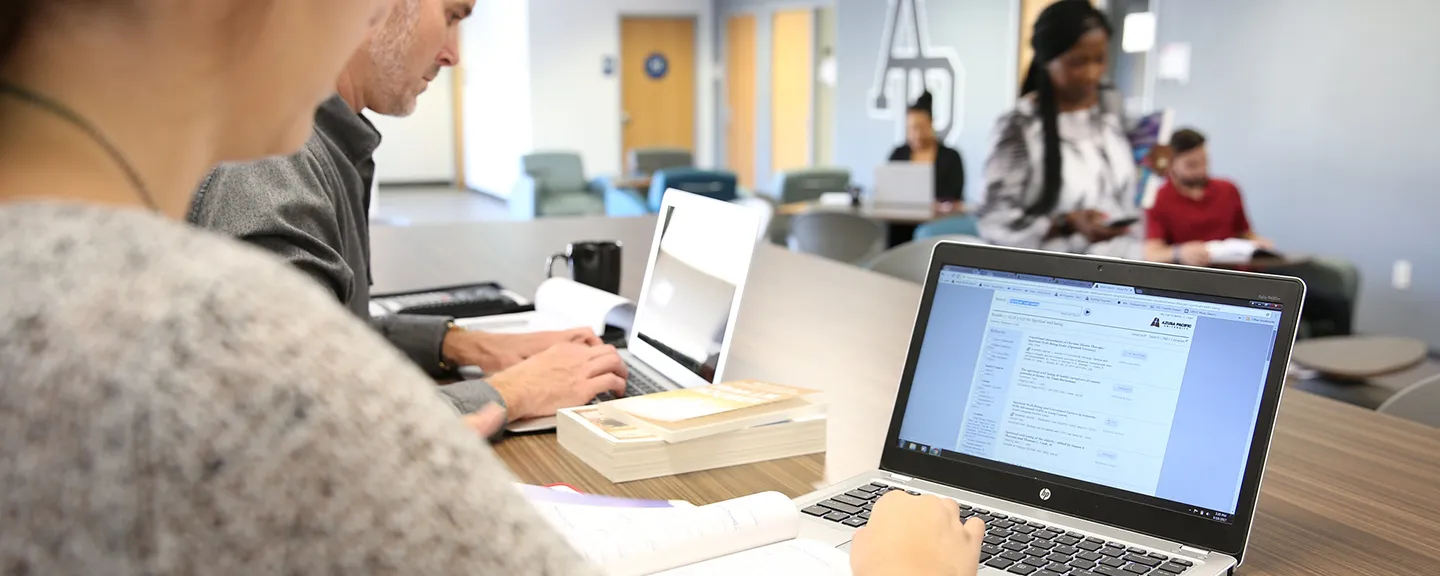- Home
- >
- APU Articles
- >
- News Article
Finding Support for Learning Disabilities in College
April 07, 2020 | Written By Stephanie Thurrott

For example, at the Office of Accessibility and Disability Resources at Azusa Pacific University, staff work with students to help identify their needs, communicate with faculty, and provide the tools they need to support their learning experience.
Carmen Varela, director of APU’s Accessibility and Disability Resources, brings more than 25 years of experience as a disability and civil rights practitioner in Texas and California to her role at APU. She said it’s important for students with learning disabilities to get the accommodations they need to succeed. “The services we provide are critical to the success of students with disabilities on campus,” she said.
Supporting People with Disabilities Helps Build Success
Varela pointed out that people without disabilities are three times more likely to participate in the labor market as those with disabilities, which she believes is a large disparity. It means that many people with disabilities are living below the poverty line.
However, Varela noted that there’s a direct correlation between educational attainment and employment. “The work we do is critical for making sure students with disabilities attain degrees, have social and economic mobility, and are able to compete in the labor force along with people without disabilities,” she said. “For every student with a disability who graduates from APU, we significantly increase the chance that they will be self-sufficient and reduce the chance that they will experience poverty. Research has shown that poverty is generational; therefore, the success of each student reduces the likelihood of future generational poverty. The work we do to help students with disabilities succeed at APU transcends the walls of the institution and creates a more equitable and just society for all of us to live in.”
How Students Can Connect with the Help They Need
Varela encourages students who might have learning disabilities in college to contact or visit the office at their school that provides accessibility services. At APU, the Accessibility and Disability Resources office provides a safe and friendly place where students can come in and figure out if they need accommodations. Varela also noted that students with learning disabilities make up the largest group of students who get help from her department. She continues to encourage more students to come in, as those who get the support they need will be more likely to succeed and to graduate.
“One thing I love about APU is that it’s not a huge public campus,” Varela noted. “That allows us to individualize and personalize accommodations for our students, based on the student’s need.”
Varela’s team looks at medical documentation and goes through an interactive process with each and every student. During their meetings, staff members talk to the students, ask questions about their history, and get to know their prior use of accommodations in order to best serve them and their academic needs.
Options for Accommodating Learning Disabilities
The level of support students require can vary, so APU offers a wide variety of solutions. Some common accommodations for students with learning disabilities include:
- Assistance with testing, including extra time, a less distracting environment, or earplugs or headphones to help filter out noise
- Transcription software that can record and transcribe a lecture (Varela said her department is moving toward using transcription rather than note-taking)
- Extended time on assignments
- Frequent breaks for students with attention challenges
Other accommodations can be added, depending on each student’s needs. Once the accommodations are in place, Varela’s team gives directives to instructors and professors so they know what each student needs to thrive with their learning disabilities in college.
Do you believe accommodations for your learning disability can help you succeed as an Azusa Pacific University student? Contact Accessibility and Disability Resources for more information.